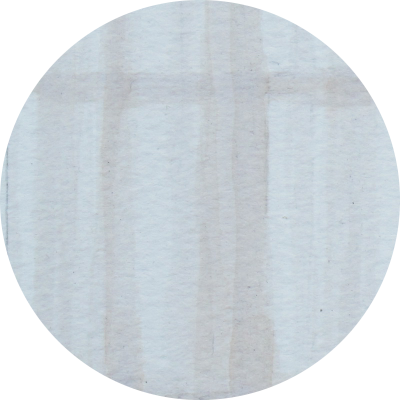At six, she wants to know more about the eyes of moles, about miner moles and helmets with headlamps and why they ruin the fields with their noses splayed out into stars and how smoke bombs get into their lairs and exterminate them without ever having seen them to begin with.
If moles are blind, then why the headlamps?
Moles are the abysmal fauna of the countryside, with no sense of day or night and no reason to leave their tunnels, which is why it’s impossible to catch a glimpse of a live mole. Like lanternfish, which live in the deepest depths of the sea and whose noses sport antennae with luminous tips, mole-bones glow in the dark and their tongues shine as if breaded with fireflies.
They move beneath the surface and you never know if they’re near or far or if they were the ones who raised those circles of dirt in the garden.
Moles have no horizon: they expand their home.
Press your tongue to the ground and you can feel them.
If moles are blind, then why the headlamps?
Moles are the abysmal fauna of the countryside, with no sense of day or night and no reason to leave their tunnels, which is why it’s impossible to catch a glimpse of a live mole. Like lanternfish, which live in the deepest depths of the sea and whose noses sport antennae with luminous tips, mole-bones glow in the dark and their tongues shine as if breaded with fireflies.
They move beneath the surface and you never know if they’re near or far or if they were the ones who raised those circles of dirt in the garden.
Moles have no horizon: they expand their home.
Press your tongue to the ground and you can feel them.
Robin Myers is a Mexico City-based poet and translator. Recent translations include Another Life by Daniel Lipara (Eulalia Books), The Science of Departures by Adalber Salas Hernández (Kenning Editions), and The Animal Days by Keila Vall de la Ville (Katakana Editores). Her poems have recently appeared or are forthcoming in the Denver Quarterly, the Yale Review, the North American Review, and elsewhere. She writes a monthly column on translation for Palette Poetry.
A los seis años quiere saber más sobre los ojos de los topos, sobre los topos mineros y los cascos con luz y sobre por qué arruinan los campos de cultivo con su nariz abierta en estrella y cómo entran las bombas de humo a sus madrigueras para exterminarlos aunque nunca los hayan visto.
Si los topos son ciegos, ¿para qué un casco con foco?
Los topos son la fauna abisal del campo, sin día ni noche ni motivos para salir de sus túneles, y por eso es imposible ver a un topo vivo. Como los peces linterna, que viven en lo más hondo del mar y llevan en la nariz una antena con punta luminosa, los huesos de los topos brillan en la oscuridad y su lengua resplandece como si estuviera empanizada en luciérnagas.
Avanzan por debajo de las cosas y nunca sabes si están lejos o cerca o si fueron ellos los que levantaron esos círculos de tierra en el jardín.
Los topos no tienen horizonte: extienden su casa.
Pega la lengua al suelo para poder sentirlos.
Si los topos son ciegos, ¿para qué un casco con foco?
Los topos son la fauna abisal del campo, sin día ni noche ni motivos para salir de sus túneles, y por eso es imposible ver a un topo vivo. Como los peces linterna, que viven en lo más hondo del mar y llevan en la nariz una antena con punta luminosa, los huesos de los topos brillan en la oscuridad y su lengua resplandece como si estuviera empanizada en luciérnagas.
Avanzan por debajo de las cosas y nunca sabes si están lejos o cerca o si fueron ellos los que levantaron esos círculos de tierra en el jardín.
Los topos no tienen horizonte: extienden su casa.
Pega la lengua al suelo para poder sentirlos.
Isabel Zapata is a Mexico City-born writer and editor. Her books include In vitro (Almadía, 2021), Una ballena es un país (Almadía, 2010), and Alberca vacía / Empty Pool (Argonáutica, 2019, trans. Robin Myers). Other poems have appeared in English translation in World Literature Today, Waxwing, The Common, Rio Grande Review, Words Without Borders, and the Massachusetts Review.
©2026 Volume Poetry

